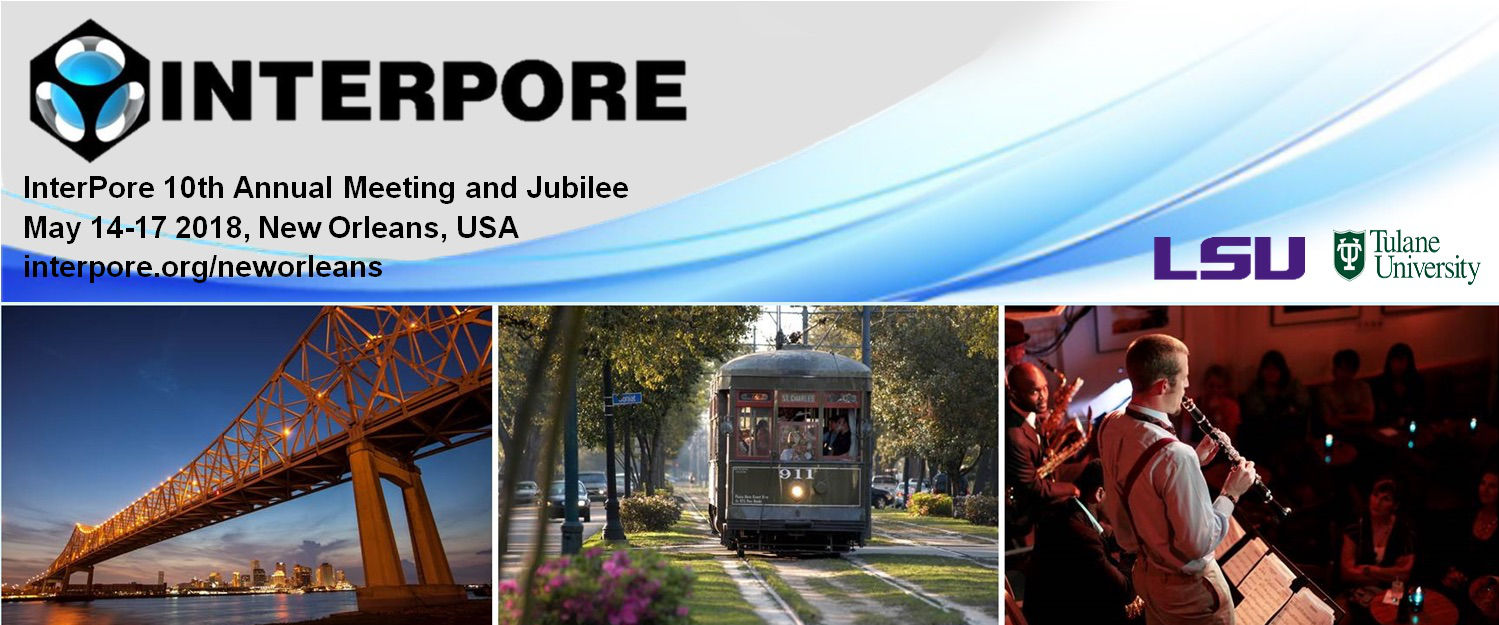Speaker
Description
Modelling multiphase porous media flows is important in many engineering areas such as geothermal energy extraction, unconfined aquifers, CO2 storage, magma reservoirs and hydrocarbon reservoirs. However, modelling of multiphase porous media flow is very challenging due to various reasons: the relative permeabilities (controlled by the saturation) introduces high non-linearities in the system; physical diffusion (a very stabilising term) does not appear in the equations, only when capillary pressure is present a diffusive effect appears in the flow. However, it is also controlled by the saturation, further increasing the non-linearity of the system. Controlling these non-linearities through the non-linear solver is very important to be able to obtain stable solutions with Courant numbers that allow to model real size reservoirs in an acceptable period of time.
A common approach to stabilise the system arising from the discretisation of the advection equation is to introduce artificial diffusion. However, introducing artificial diffusion does change the result, therefore a balance has to be found so that the introduced artificial diffusion is strong enough so it helps to solve the system while not severely affecting the final result.
In Salinas et al. 2017, a vanishing artificial diffusion was detailed. In that method, the diffusion was controlled by the convergence of the non-linear solver by multiplying the artificial diffusion term by the difference between the most recent saturation estimation and the one obtained in the previous non-linear iteration. This method allows to use higher artificial diffusions while also minimising the artificial diffusion effect in the result. Nonetheless, as the saturation estimation from the previous non-linear iteration is introduced in the right-hand side of the equations, if the difference between saturation estimations when the non-linear solver has converged is not small enough, then a source/sink term is introduced for that specific phase.
Here, a conservative vanishing artificial diffusion is presented. It improves the convergence and convergence rate of the non-linear solver by reducing the non-linearity of the equations. Moreover, it is tailored to specially help to deal with the capillary pressure. The vanishing artificial diffusion is introduced using the same model employed to introduce the capillary pressure, obtaining a vanishing artificial capillary pressure diffusion term. By introducing this vanishing artificial diffusion in the saturation equation, which is solved implicitly, a very efficient method to model multiphase porous media flow with physical capillary pressure is obtained. This method provides accurate results and significantly reduces the effort required by the non-linear solver to achieve convergence. It enables to carry out very demanding numerical simulations, e.g. when the capillary pressure effects are dominant, with Courant numbers that are at least two orders of magnitude bigger than without it. For this particular case, it enables to obtain solutions up to 175 times faster than before.
References:
Salinas, P., Pavlidis, D., Xie, Z., Adam, A., Pain, C. C., Jackson, M. D., 2017. Improving the convergence behaviour of a fixed-point-iteration solver for multiphase flow in porous media. International Journal for Numerical Methods in Fluids 84 (8), 466 – 476
References
Salinas, P., Pavlidis, D., Xie, Z., Adam, A., Pain, C. C., Jackson, M. D., 2017. Improving the convergence behaviour of a fixed-point-iteration solver for multiphase flow in porous media. International Journal for Numerical Methods in Fluids 84 (8), 466 – 476*
| Acceptance of Terms and Conditions | Click here to agree |
|---|


